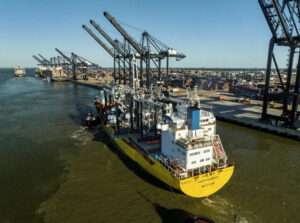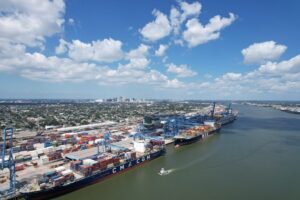Sri Lanka has agreed two contracts with Chinese firms for a port upgrade project, despite a period of political turmoil in which the legitimacy of its government has been questioned, according to Reuters.
While its closest neighbour India has been competing with China, for deals to develop the island nation and gain influence over the region, Sri Lanka is still expected to play a role in the Belt and Road Initiative (BRI).
The Sri Lanka Ports Authority has informed Reuters that contracts with Chinese companies, approved by the disputed cabinet of Sri Lanka’s new Prime Minister Mahinda Rajapaksa, are worth over US$50 million.
Read more about China's trade policies with a Port Technology technical paper
OBOR: 10 Facts about China’s Road #PTIDaily SEE MORE: https://t.co/ji6dplmhbd#beltandroad #china #shipping pic.twitter.com/WJCJz4eYCc
— Port Technology (PTI) (@PortTechnology) August 20, 2018
One of the two agreements, to boost the state-run Jaya Container Terminal (JCT) in Colombo, was made with the China Harbour Engineering Company, who will carry out a $32 million project to increase the JCT’s deep berth capacity.
The other contract, worth $25.7 million, was signed with Shanghai Zhenhua Heavy Industries, who will deliver three cranes to the terminal.
Once again the #FakeGovernment is defeated in #SriLanka Parliament, this time 123:0 to stop the Sec to #FakePM from spending money on his boss. If he does, he will be dealt with according to the law. Pres @MaithripalaS do what you have to now. MR, Go for Gods sake. Go! pic.twitter.com/DzcSChm8E6
— Harsha de Silva (@HarshadeSilvaMP) November 29, 2018
Despite signing both deals, the replacement of former Prime Minister Ranil Wickremesinghe by Sri Lankan President Maithripala Sirisena has created uncertainty about which government officials are able to make decisions.
Foreign countries have not officially recognized the new government, which has been opposed by Wickremesinghe’s party.
In addition to this, Reuters has reported that Sri Lanka still owes approximately $8 billion to China, including state linked firms and banks.
Read the original article by Reuters










